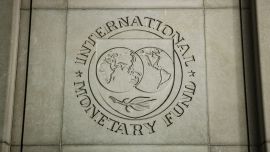My reply:
“As you doubtless know, a potential black swan has abruptly surfaced this week in the form of a Patagonian corpse. Far too many questions – even a normally reliable “cui bonum?” logic does not take you very far – but they are forensic more than economic so luckily I’m not required to answer them here. I’ve yet to encounter a pundit who considers this development a game-changer but you never know. Yet it is striking that the last time the nation voted two years ago, the year 2015 also included a news bombshell – the death of special prosecutor Alberto Nisman – with no visible electoral impact in proportion to all its drama and trauma (although I suspect that it lurked in the subconscious of many voters).
“Let us assume that the Mauricio Macri presidency achieves its main objective of becoming the first government since 1985 to win the ‘big five’ (sounds like Kruger Park but refers to Buenos Aires city and province, Córdoba, Mendoza and Santa Fe) – would this serve as confirmation for the outside world that Argentina is changing for good?
“Two comments here. Firstly, with the single exception of 2001 every government since 1983 has cleared the hurdle of its first midterms quite comfortably – there seems to be an unspoken popular consensus that any presidency deserves more than two years to be fairly tested. Secondly, Raúl Alfonsín’s Radical sweep of 1985 has never been equalled since but what came next? In 1987 the joke ran: ‘What does UCR stand for?’ Answer: ‘Unicamente Córdoba y Río Negro’ (the only two of the then 22 provinces won by the Radicals).
“Macri might thus not be ‘condemned to success’ but this does not necessarily save the Peronist decline from being irreversible. This malaise is generally ascribed to fragmentation and a confused leadership – the movement’s supreme figure (whom I may not name since this column will appear during the electoral curfew which bans publication of the names of candidates or party labels) cannot win herself but crowds out anybody else from seeking to reunite Peronism in her place.
“But in my opinion the crisis of Peronism runs much deeper than its chronic problems of succession. During the three decades of democracy there have been profound changes in socio-economic structures, creating a new sociology with which Peronism cannot cope. Despite Alfonsín’s upset win, the initial democracy of 1983 revolved around the Peronist blue-collar masses, always unionised and often skilled industrial workers with basic schooling. Yet this electoral base has been displaced by the surge of poverty from 18 percent in 1983 to the current 30 percent, thus knocking Peronism out of its comfort zone. This rise in poverty should have been countered by public spending leaping from 30 to 45 percent of Gross Domestic Product over the same period (many Latin American countries halved their poverty rates in the last quarter-century) but instead that burden has weighed down the productive sector, making the unionised and formally employed workers increasingly a minority. Initially a captive vote, the underprivileged under their picket leadership are becoming electorally volatile. At the other end of the social scale the red circle elites of the private sector once dominating governments now find the tail wagging the dog.
“But again assuming that Macri achieves his aims and ends tomorrow with his coalition’s caucus comfortably into three digits in the Lower House, what would be the priorities of his economic policy? These have been widely assumed to be a trident of labour, pension and tax reform but from Washington DC (attending the annual assembly of the International Monetary Fund and the World Bank) Treasury Minister Nicolás Dujovne implied that only the latter was on his frontburner for now.
“This in turn suggests that Congress will not be the prime vehicle for the reforms, thus relativising tomorrow’s results somewhat. It is perhaps no accident that tax reform has been singled out because it is the only arena where Congress cannot be avoided – ever since the creation of the United States, ‘no taxation without representation’ has been a cornerstone of democracy. There are various signs that the government considers organised labour (on the defensive with an adverse sociology and technology) to be a softer touch in changing times and will thus channel its labour reforms through collective bargaining. As for pension reform, the calculation appears to be that Argentina is not quite at the end of its demographic bonus and thus still has a few years to work towards a new consensus.
“But while Congress is a necessary condition for tax reform, it is far from sufficient – all the fiscal federalism conundrums we were discussing a fortnight ago will need sorting out (with the future clout of provincial governors one of the most important of tomorrow’s results to watch out for).
“Finally, you always dwell on my lack of profesional qualifications to be a consultant, Dr Hale, but you are getting a lot of information for free. Could there be some money somewhere down the road or are you that impoverished?”























Comments